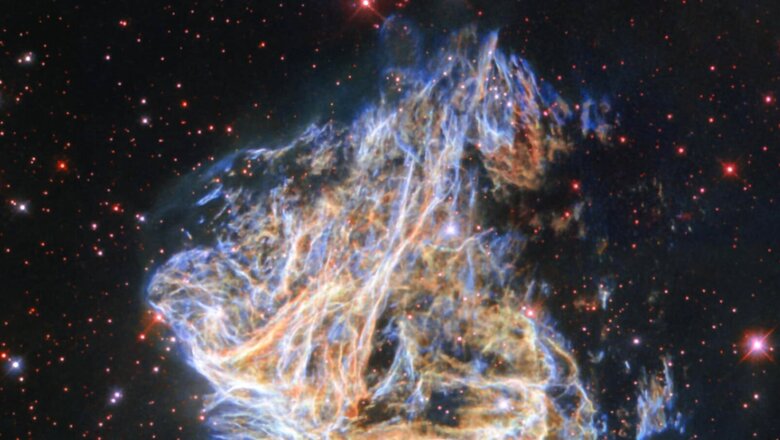
views
NASA has just revealed a set of stunning snaps of what is known as the supernova explosion. Along with it, they have shared a fact about this event that will make your head spin. According to their latest tweet, the contents of a star that dies in a supernova explosion can fly out into space at a breakneck speed of up to 25,000 miles per second. It is no wonder that supernovas are considered to be one of the most powerful and energetic events in the universe. The intensity is clear in the images shared. The tweet was accompanied by a series of Hubble images that showcase the aftermath of stars that died in supernova explosions. From colourful swirls of gas and dust to intricate patterns of debris, the images are a testament to the incredible power and beauty of these celestial events.
What do all these Hubble images have in common?They show the aftermath of stars that died in a bright, powerful explosion known as a supernova.
In a supernova, a star’s contents fling out into space at speeds of up to 25,000 miles (15,000 to 40,000 km) per second! pic.twitter.com/KC5BHNeSZa
— Hubble (@NASAHubble) February 27, 2023
Well, impressed was an understatement when it came to the Internet’s reaction. Most people were too stunned by the beauty of the supernova. They remarked that no words could describe the beauty of the moment that was captured. A Twitter user wrote, “Probably the only thing in the universe that gets more beautiful when it dies.”
Probably the only thing in the universe that gets more beautiful when it dies— Faris A (@farazfaris0901) February 28, 2023
“Damn, I know all of these shots need filters to see the colours we do, but oh my are they beautiful!” another user tweeted.
Damn, I know all of these shots need filters to see the colors we do, but oh my are they beautiful!— Paolo Maselli (@PMComet) February 27, 2023
A tweet read, “Though stars may die, they leave behind a legacy that we can view. A cosmic tale for all mankind, of beauty, power, and the new.”
Though stars may die, they leave behind, A legacy that we can view, A cosmic tale for all mankind, Of beauty, power, and the new.— Heiko (@HeiKo51112349) February 27, 2023
NASA has shared that this celestial event is often seen in other galaxies. They are difficult to see in our own Milky Way galaxy. This is because dust blocks our view. In 1604, Johannes Kepler discovered the last observed supernova in the Milky Way. Thanks to NASA’s Chandra telescope the remains of a more recent supernova were discovered. These exploded in the Milky Way more than a hundred years ago.
Though a supernova burns for only a short period of time, it can unveil a lot about the universe to scientists. It was one kind of supernova that has shown that we live in an expanding universe. That is a universe that is growing at an ever-increasing rate. Supernovas are also instrumental in distributing elements throughout the universe. When the star explodes, it shoots elements and debris into space. Many of the elements we find on Earth are made in the core of stars.
Read all the Latest Buzz News here



















Comments
0 comment